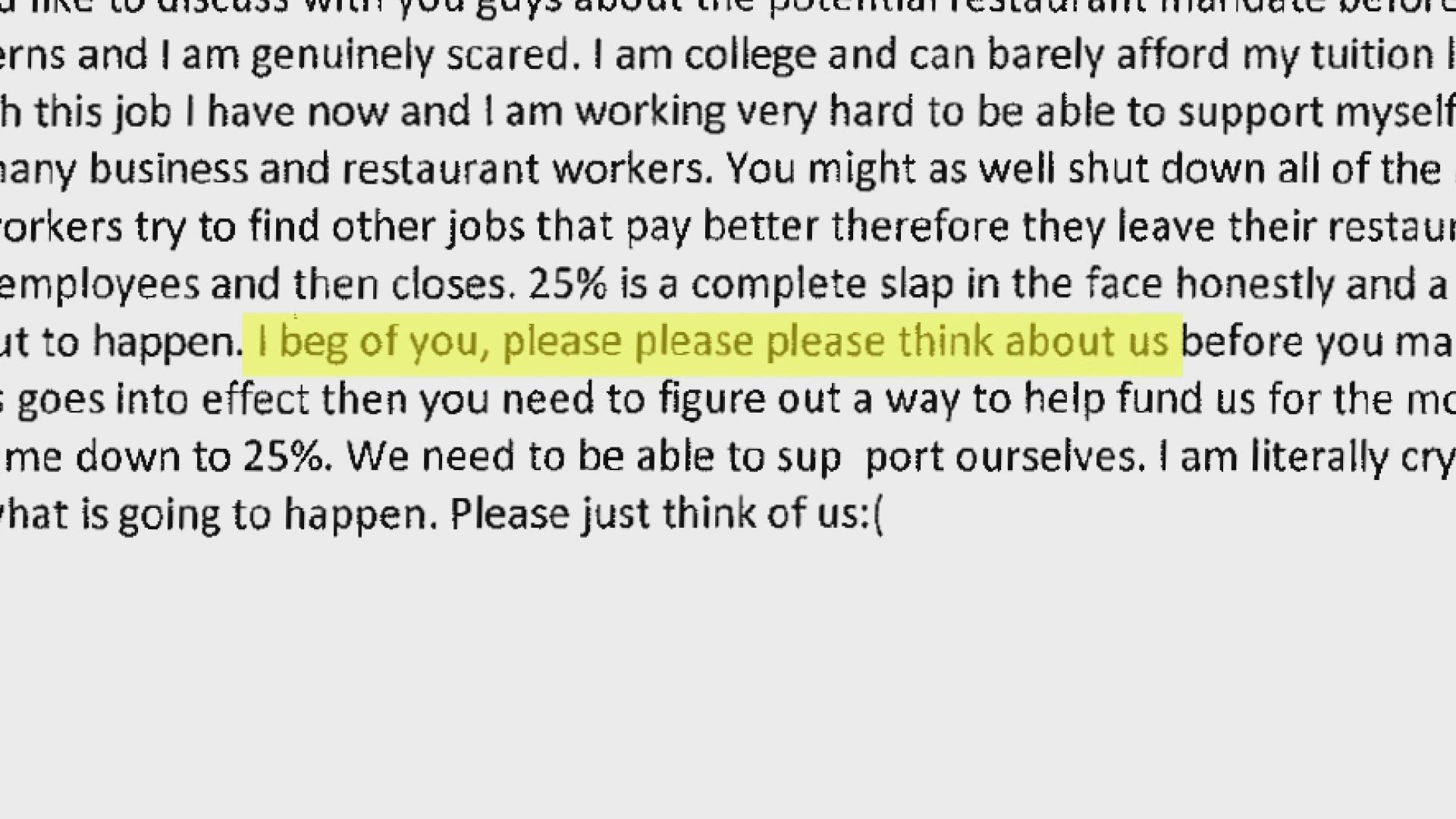Members of the Knox County Board of Health voted 7 - 2 to push the alcohol curfew back to 11 p.m. starting Thursday, as COVID-19 cases decreased across the country. It was extended to Feb. 18.
They also voted to extend the social gathering limit until Feb. 18, 7 - 1. Knox County Mayor Glenn Jacobs voted against the extension. The mask mandate also continued to be in effect.
"That extra hour or two can make a big difference for businesses," said Ani Roma.
Spanish Version: De vuelta la restricción en venta de bebidas alcohólicas comenzando el jueves a las 11 p.m.
During the meeting, they also discussed dropping COVID-19 numbers in the county as well as the Knox County Health Department's ongoing vaccination efforts. On Friday, the Tennessee Department of Health adjusted its COVID-19 timeline due to a lack of supply from the federal government.
Many people have struggled to book an appointment for vaccinations in Knox County, as openings fill up within minutes whenever they're announced. Dr. Martha Buchanan said that KCHD, as well as health departments across Tennessee, did not have enough COVID-19 vaccines to keep up with the demand.
When vaccination appointments were available, the department was overwhelmed with more than 70,000 calls to the COVID-19 hotline.
Buchanan said that as of Tuesday, more than 34,000 vaccinations were reported in Knox County. She said that 7.3% of the population had received a vaccine. The health department also administered around 6,600 on Tuesday, officials said.
"We are working with some community partners to allow vaccines to occur in some different places. It's not totally dependent on us having different clinics," she said. "That will help free us up a little bit for outreach to high-risk groups who may not want to go to a large event."
Lisa Wagoner said that Knox County Schools teachers were asked about their interest in receiving a COVID-19 vaccine. Data from that survey was not immediately available, Wagoner said.
There were 103 new COVID-19 cases since Tuesday, and there were 9 additional deaths. Over two weeks, she said that new cases continued to drop and so that the sustained reduction benchmark was set to "yellow." She said that the positivity rate was around 15% in the community.
The second benchmark, tests conducted for Knox County, was set to "yellow." A lower volume of people are seeking COVID-19 tests, and Buchanan said that they are hoping this is an indication of fewer chances of exposure across the community.
She said that the third benchmark about public health capabilities was being reworked as the response to the COVID-19 pandemic evolves.
Health care system capabilities for surges were set to "yellow" as well. She said that the capacity is still at a high volume, despite the recent drop in hospitalizations.
The COVID-19 death rate in Knox County was still at "red." However, Buchanan said that she hoped the rate would fall and that it could follow other trends in the community at a delay.
Dr. James Shamiyeh also gave a presentation for the region's hospitals. He said that around East Tennessee, officials have noticed a drop in COVID-19 cases.
"This is too consistent of a trend to not be real," he said. "We're seeing the same trend across most of the country."
Shamiyeh said that most drops occurred between people 20 -70 years old. Other age groups remained flat, he said. He also noted an increase in the Knox County positivity rate, but said he suspected the slight spike was due to "data catching up."
He said that there was a significant decrease in the number of COVID-19 patients in hospitals, at 352. It is almost half the high of 615 patients. However, he urged that the number of patients was still high, despite falling.
He also noted that an expected spike in COVID-19 cases after the holidays never came. He said that snowfall around the holidays may have helped prevent the spike in cases, but also said there have been enough people who have had COVID-19 impact their families or their lives that it is changing people's behaviors.
"Enough people know people who have become seriously sick or were impacted by COVID-19 that it's changing behavior," Buchanan said. "What I would say to our community is to keep up the five core actions so we can continue to see these positive numbers."
Dr. Martha Buchanan also said that officials will soon create a community health improvement plan using the department's community health report. One major topic in previous reports was substance misuse.

